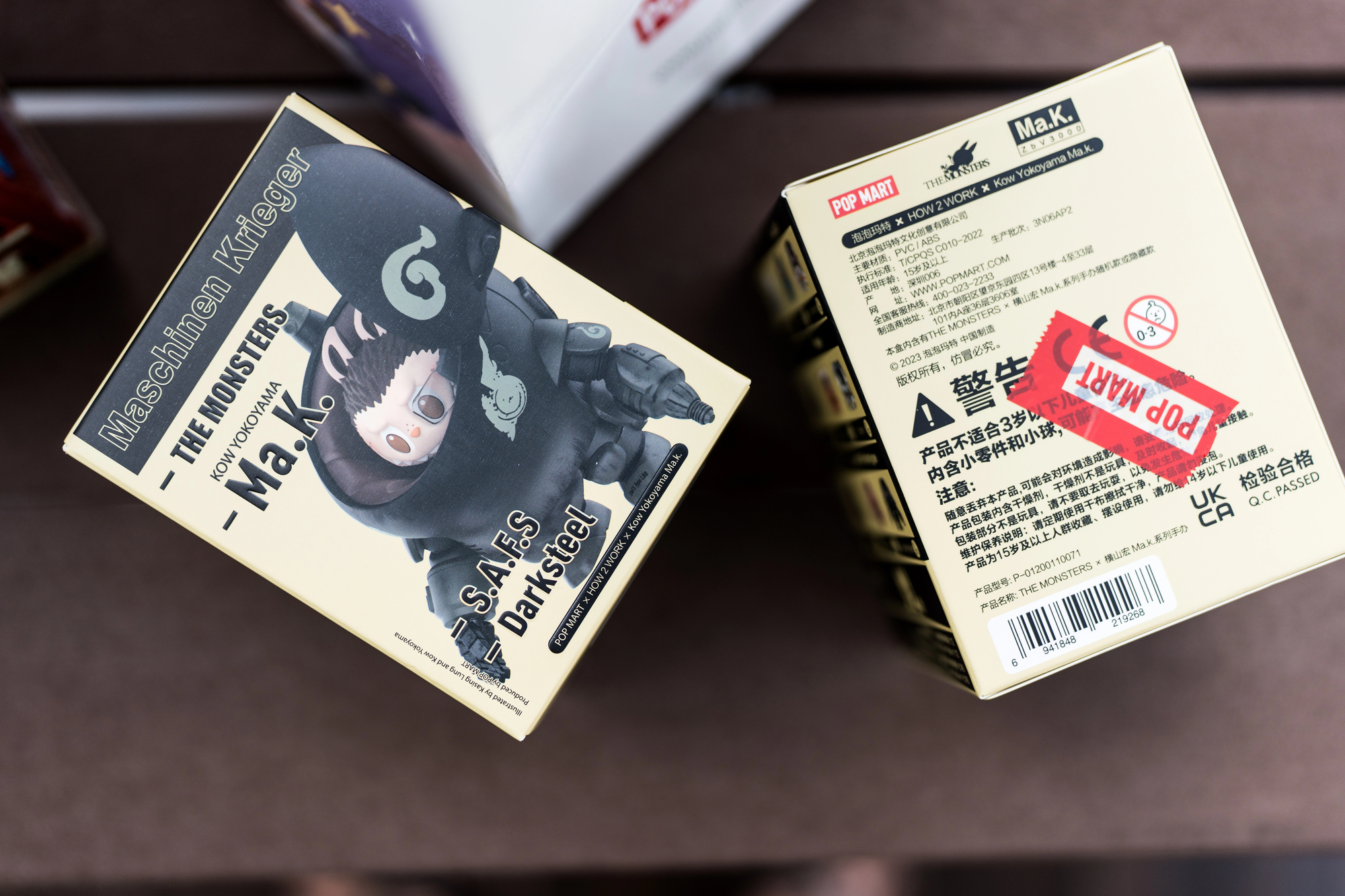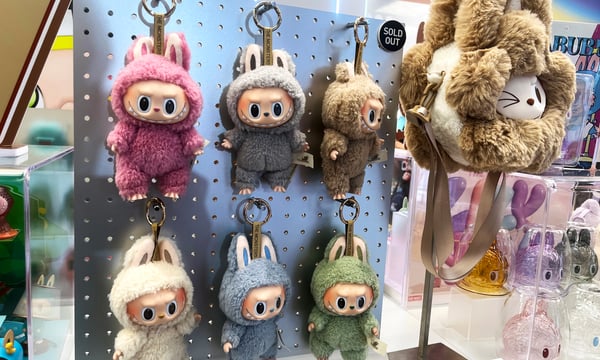One of the most sought-after items of 2025 isn’t a designer handbag or the latest tech gadget. It’s a plush elf with a snaggle-toothed grin.
Labubu (拉布布) is a global sensation. From David Beckham and Rihanna to Dua Lipa and Blackpink’s Lisa, celebrities – and even members of the Thai royal family – have been spotted showcasing their Labubu collections.
Created in 2015 by Hong Kong artist Kasing Lung for his picture-book series The Monsters, Labubu gained mass popularity when toy company Pop Mart began releasing it as a blind-box collectable in 2019. The toys are often sold in blind-boxes, where people don’t know what make they’ve bought until after opening the box.
The niche designer toy has since spiraled into a multi billion-dollar obsession. Plushies sell out within minutes, fans queue for hours, and rare editions like an over one-meter-tall, mint-green-colored Labubu have fetched over $150,000 at auction.
Labubu isn’t just a toy. It’s a glimpse of how China’s long-awaited soft power is beginning to take shape in unexpected ways.
For years, the Chinese government has tried to cultivate a positive image abroad through the Belt and Road Initiative, introducing visa-free entry to boost tourism, and promoting homegrown brands.
None of these efforts has matched the spontaneous global appeal of this small plush creature. Unlike Japan’s government-funded “Cool Japan” initiative launched in 2010, or South Korea’s highly coordinated export of creative industries, Labubu succeeded without central planning. It went viral organically: fanned by fandoms, fueled by TikTok, and amplified by celebrity endorsements.
Now, China is starting to look “cool” to the outside world.
Pop Mart’s blind-box sales model taps into the same reward mechanisms as online gaming. More than buying a toy, it’s about the thrill of unboxing the rarest edition, the social status of ownership, and the resale value of a seemingly childish product. This cultural product is emotionally charged and economically strategic.
For China, Labubu represents an unintentional yet potent form of soft power: a quirky figure that makes the country feel playful, creative, and emotionally accessible.

Blind boxes containing a Labubu toy. Photo via Depositphotos.
In an era when global perceptions of China are often shaped by geopolitics, surveillance, and authoritarianism, Labubu seems to offer something different – something disarming.
Japan, long celebrated for its exports of anime, fashion, and food culture, launched its “Cool Japan” strategy in 2010 to formalize and promote its creative industries abroad. The initiative helped amplify global interest in sectors such as anime and cuisine but it often struggled with bureaucratic inefficiency, market misjudgements, and unclear performance metrics.
Many of the country’s cultural successes – from Pokémon and Studio Ghibli to ramen and izakaya – were largely driven by market forces and fan communities, rather than by the government.
South Korea provides a more recent, effective model. The Korean Wave, or hallyu, has been heavily supported by state investment and infrastructure. From the film “Parasite” to global icons such as K-Pop band BTS, South Korea’s cultural output has earned international acclaim and helped rebrand the nation on the world stage. Importantly, the Korean Wave was a case of soft power being harnessed intentionally and strategically, with entertainment at the forefront of foreign policy.
Labubu represents a third model: accidental soft power born from a commercial ecosystem in China increasingly focused on intellectual property (IP), lifestyle branding, and consumer-driven trends.
Beyond its political implications, the Labubu craze reflects wider shifts in global consumer culture. Today’s toy market is no longer just for children. The “kidult” sector, driven by adults spending money on nostalgia, comfort-seeking, and collectability, is rising. The frenzy over Labubu is part of this trend, where millennials and Gen Z buyers invest in emotionally charged objects as expressions of identity, status, and belonging.
At the same time, Labubu represents a growing intersection between play and finance. The resale market treats plushies like speculative assets. Their scarcity creates value; their emotional resonance creates demand. It’s capitalism with a fuzzy face.
Not everything is cuddly. In cities like London or Seoul, Pop Mart was forced to suspend sales after scuffles broke out among fans competing to buy the toys. And a surge in global counterfeits has raised growing concerns over IP protection and consumer trust.
Labubu may look like a mischievous little elf, but it carries serious cultural weight. It reflects a China that is no longer just a producer of goods, but a producer of desire.
It’s tempting to see Labubu as a fad like fidget spinners, Beanie Babies, or Tamagotchis. But it signals something deeper: a shift in how Chinese cultural products can evoke emotion, status, and aspiration on a global scale.
This tiny plush toy took nearly a decade to become a global sensation. China’s hopes of fully realizing its soft power potential may take even longer. But if Labubu is any indication, the way forward may depend less on state-led campaigns and more on organic, bottom-up cultural momentum.
This article was originally published on The Conversation. Read the original article.
![]()






